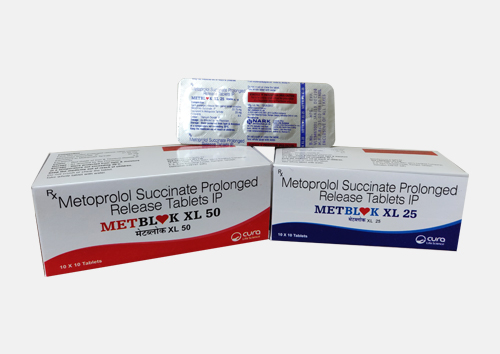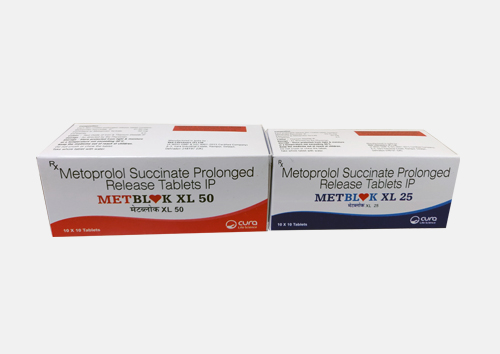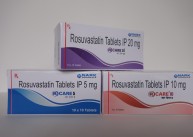Metoprolol
Metoprolol, , is a medication of the selective β1 receptor blocker type. It is used to treat high blood pressure, chest pain due to poor blood flow to the heart, and a number of conditions involving an abnormally fast heart rate.
Metoprolol is sold in formulations that can be taken by mouth or given intravenously. The medication is often taken twice a day. The extended-release formulation is taken once per day. Metoprolol may be combined with hydrochlorothiazide (a diuretic) in a single tablet.
Common side effects include trouble sleeping, feeling tired, feeling faint, and abdominal discomfort. Large doses may cause serious toxicity. Risk in pregnancy has not been ruled out. It appears to be safe in breastfeeding.
Medical uses
Metoprolol is used for a number of conditions, including hypertension, angina, acute myocardial infarction, supraventricular tachycardia, ventricular tachycardia, chronic LV systolic dysfunction, and prevention of migraine, Treatment of diastolic heart failure, Vasovagal syncope, Adjunct in treatment of hyperthyroidism.
Mechanism of action
Metoprolol blocks β1 adrenergic receptors in heart muscle cells, thereby decreasing the slope of phase 4 in the nodal action potential (reducing Na+ uptake) and prolonging repolarization of phase 3 (slowing down K+ release).It also suppresses the norepinephrine-induced increase in the sarcoplasmic reticulum (SR) Ca2+ leak and the spontaneous SR Ca2+ release, which are the major triggers for atrial fibrillation.







